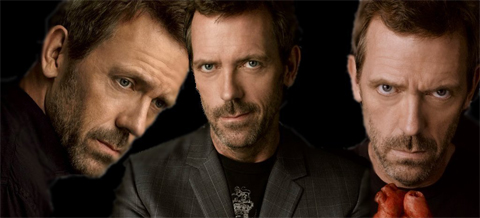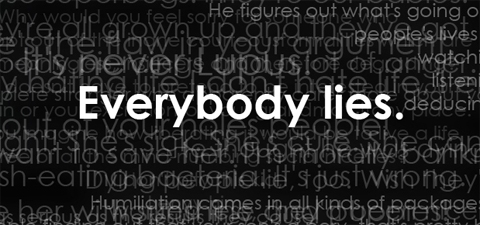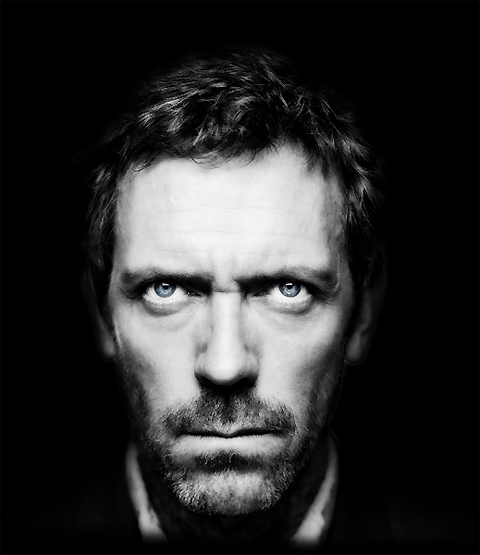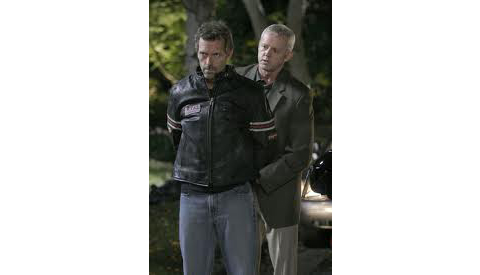
n. 4 / gennaio 2014
Serial power. La politica impolitica delle serie tv
n.3 / luglio 2013
Annisettanta
n. 2 / gennaio 2013
Il viaggio e l'immagine dell'Altro
n. 1 / luglio 2012
Le speranze deluse del POST
n. 0 / gennaio 2012
Che cos’è l’iconocrazia
n. 4 / gennaio 2014
House and Politics
Giuseppe Cascione
Professore aggregato di Filosofia Politica
Università degli Studi di Bari Aldo Moro
House is often defined as an anarchist. We’re not going to get involved here in an analysis of what the anarchist movement is, in terms of traditional political philosophy, and how it has evolved over the past three centuries. When others use this term they are making a generic reference to a rebelliousness, to a readiness to break rules which have been established to maintain the established order. In general, the figure of the anarchist matches the chaotic nature of a politically irrational attitude which rejects everything but offers no solutions to human problems, other than in wholly negative terms. In particular, the anarchist refuses rules, any rules, the very notion of rules, at least, in the trivial definition of the term, which is that used by those who judge House.
So, is House an anarchist?
From what we have said so far, it would appear that House is the very opposite of an anarchist. In effect, he doesn’t refuse rules as such. He refuses meaningless rules. The highly rationalistic nature of his outlook necessitates blind faith in the uniformities which establish order in the world, an order which is certainly ambiguous and always deniable, but without which hypotheses—for example, diagnostic hypotheses—would become little more than shots in the dark, directionless and without any base for intuition. In this sense House is not an anarchist because he believes in rules and their utility. This is, in effect, a fundamental prerequisite for House’s ‘groundless certainties’. For a rule to be valid it must work, it must show itself empirically capable of resolving problems. Consequently, any rule that does not contribute to the resolution of problems, is not a rule and, as such, can not be and should not be respected. A useless rule is a non-rule, and there’s no problem in not respecting non-rules.
The imperative, mandatory nature of a rule lies in the fact that not respecting it causes more problems than it resolves. The basis of normativity is, therefore, the functional rationality of the regulatory mechanism. But often rules break away from the reasons for which a society adopts them and assume a life of their own. They become rites independent of any real use. They downgrade themselves to procedures or simple protocols which, in a relevant number of cases, reveal themselves to be useless or even harmful. These are the rules that House loves to break, useless rules that people follow solely out of habit, fear or false belief, but which often underlie the politically correct. House’s incorrectness is not anarchic, rather it tends towards a re-evaluation of the importance of rationally-founded rules whilst brushing aside all the others. In the confusion of protocols—from our clothes to sexual habits, from verbal to non-verbal language—no one can distinguish any longer between what works and what doesn’t, what is useful and what isn’t. Only a pre-emptive demolition job on these linguistic trimmings can restore language’s authentic dimension. Obviously, we’re not talking about the ‘language of poets’ here. House doesn’t consider himself a ‘superman’, not in the sense of someone above everyone else. He loves to earn his stripes on the field. Just as no one gave them to him, so no one can take them away from him. At least not until someone proves that House can no longer do his job, that of saving lives, or, put a better way, combating death. In short, House has no intention of respecting meaningless or useless rules just to be politically correct. He’d rather risk the sack or prison, an irredeemably solitary life or the hatred of the very people whose lives he is saving. For him all this is necessary because if he ever found himself in the shadowy realm of the politically correct, he’d no longer be able to do his ethical duty, he’d not be able to save lives.
Death lurks in the confusion, it plays its cards in the dark, stirring the waters; it can only be fought by eliminating everything superfluous and returning to the essential heart of the problem.
Another reason why House is not an anarchist is his relationship with the hierarchy. It goes without saying that an anarchist hates any form of hierarchical relationship. House doesn’t hate the hierarchy. On the contrary, he believes that in certain cases it has a very important role to play. In particular, when it comes to taking serious decisions, decisions concerning patients’ life and death, House believes that the hierarchy clarifies the attribution of responsibility in regard to the final decision and that this allows the identification of fault or merit in regard to the success or failure of the response to the case. Naturally, this requires a sacrifice, which comes in the form of obedience. Those who hold no responsibility for a problem should help those who do or at least not obstruct them in their course of action. One can evaluate whether responsibility should remain with the same subject or whether it should be attributed to someone more capable when the situation has stabilised. In the meantime, House demands absolute dedication, but only in cases where decisions can potentially harm other people. To pull rank is never simple for House, but if the difficulties of the case demand it he’ll do it without hesitation, just as he accepts without hesitation the decisions of his superiors. Of course, he only accepts them when it seems to him that there is rational evidence to doubt what he has done and if he can not convince his superior to change strategy.
However, in the end, he accepts.
Hobbes
Hobbes speaks of «homo homini lupus», House speaks of «mutually assured destruction». The presupposition is the same, and is repeated by House on numerous occasions—that evil is within us. For man, evil is an insuperable condition, but it is also the sole presupposition for the existence of universal rules which condition the behaviour of men in such a way as to make it at least reasonable. For Hobbes, as for House, the political sphere is the context in which this one chance of collective reason can realize itself and take form.
On an individual level, man exhibits a mix of desire to take possession of other people and fear that other people feel the same impulse towards him. Call this phenomenology of the spirit or theory of recognition, House’s conclusion is that it’s fear that triumphs in the face of this possibility that other people are enemies, fear of being hit, offended or killed. What House calls cowardice is, in fact, Hobbes’ desire to survive, which gives rise to the pactum societatis, or in House’s view a sort of ‘equilibrium of terror’.
It’s in the political sphere that this terror is neutralised. Here, subjects make the rational choice not to destroy each other, limiting their range of movement to the activities made legal by general rules and protocols.
House regards politics from at least two viewpoints: politics as the exercise of power, and politics as the faculty to decide in critical situations. In neither case is House negative a priori, in the sense that the practice of politics is in any case a means for reaching ends which, in ethical terms, can be either positive or negative. In the first case, that of the fixation with communal norms, judgement can be given a priori when rules are established for future application; in the second case, judgement is expressed in regard to criteria which can only measure the effects of a decision, thus a posteriori.
The degree to which House’s relationship with the rules is problematic is made very clear by Jack Moriarty—the reference to the baddie in Sherlock Holmes is so evident that it is Moriarty who shoots House—in this passage.
Jack: You pretend to buck the system, pretend to be a rebel, claim to hate rules. But all you do is substitute your own rules for society’s. That’s a nice, simple rule—tell the blunt, honest truth in the starkest, darkest way. And what will be, will be. What will be, should be. And everyone else is a coward. But you’re wrong. Someone cowardly should not call someone an idiot. People aren’t tactful or polite just because it’s nice. They do it because they’ve got an ounce of humility. Because they know that they will make mistakes, and they know that their actions have consequences, and they know that those consequences are their fault. Why do you want so badly not to be human, House? [2.24] [20:38-21:57]
Power
Power has the capacity to prescribe general norms which condition thebehaviour of those subject to the power. The problem is that in certain contextspower expresses itself drastically, by fixing rules which are not the result of negotiation between subjects but purely and simply imposed. House doesn’tseem to hold an a priori negative position on this. It’s true that he is often victim of the prescriptive nature of power as expressed by his superiors, but it’s also true that he imposes the same logic on those beneath him—one of House’s recurring expressions, particularly in the fourth series is «you’re fired». In reality, even in this Hobbesian case, House prefers to have a criterion for order rather than not to have one. The fact that this criterion generates a rational order is another matter.
The right to resist, which House often invokes, derives from rational considerations which highlight the system’s limits. These considerations derive from specific cases where the procedures’ universal logic is not enough to resolve the case. But not everyone has the right to resist and it shouldn’t be conceded to everyone. Furthermore, the right to resist is not an a priori positive fact, but should be judged according to the effects it produces—it doesn’t free the subject who exercises it of responsibility, rather it renders him even more responsible for the effects that it produces. If breaching the protocols produces positive results, it becomes positive, but if it produces results worse than those which would be obtained by respecting them, it becomes inadmissible.
The Housian character who embodies power, with all its protective and coercive implications, is Cuddy. Cuddy conducts relations with her staff with great energy and determination, and even asserts her authority towards House, maintaining that this is the fundamental aspect of her role.
House: You want something, I want something. We compromise. It’s the grown-up way to resolve our differences.
Cuddy: There already is a mechanism for that. It’s called the employer-employee relationship. I get what I want, and you don’t. [3.01] [15:46-15:55]
Rules
Having fixed rules for everyone appears to be the only possible bulwark against power that expresses itself in a form unrelated to the ends for which it was created. Sometimes, the space that the rules leave open for us to act in seems to be too small to allow us free expression and this sensation is almost certainly part of the essence of power itself. However, the fact that some rules can not be broken, not even by those who administer them—the House vs Tritter incident is the most obvious example—seems to be a criterion that satisfies more than it dissatisfies, and this is the positive side of the coin.
It’s also true, however, that the presence of rules not only determines the legal and illegal spheres, but also the moral and immoral spheres. This is part of the concept of normality. Rules tend to morally qualify behaviour—at least in common acceptance—and the sphere of legality tends to coincide with that which only a part of the collective—the part whose convictions form the basis of the rules—considers normal. In this case, House’s viewpoint regarding the rules is completely negative. As always, he cynically fixes his stare on functionality. In fact, rules established for a social group often don’t cover other groups and what seems politically correct to the majority is anything but for the minority. In this case, these rules don’t result rational as they don’t resolve individual subjects’ real problems, rather they pose new ones.
On account of House’s unorthodox behaviour, the policeman Michael Tritter commits an abuse of power that develops into a real persecution ad personam of House. However, the policeman’s minor power is corrected in court and brought back into line by the communal laws, laws to which even the intemperate House is obliged to submit.
Judge: Dr House please stand [House and lawyer stand up] my suspicion is your boss [stops herself] my suspicion is you have better friends than you deserve. Rules and laws apply to everyone, you are not as special as you think. But Detective Tritter chose to make you so. Detective, I don’t know exactly what’s going on here, but I am sure that this man is not flooding the street with cocaine. I’m also certain that knowing Dr House, he must have done something to set you off but you’re going to have to live with it. Given Dr Cuddy’s testimony I’m not going to allow this to proceed to jury [shot of House looking relieved] case dismissed. Court is adjourned. [House starts to leave] Dr House, you’re still guilty of contempt for that little walk out earlier, you’ll be spending the night in jail, and after that your going right back to your rehab, bailiff take Dr House into custody. [3.11] [37:08-38:09]
But it’s very interesting to note how House rattles the iron cage of communal regulations. In this short conversation with the hospital lawyer, it’s clear how the rules based on House’s ethical stance clash irredeemably with the regulations that the bureaucracy has fixed as general norms to be applied irrespective of any specific case or its moral implications. In this particular case, the situation requires an immediate choice. Because of a potentially lethal epidemic in the maternity department, House is forced to suspend administration of two drugs to two sick babies in an attempt to identify which of the drugs actually works.
But doing so will cost the life of one of the two babies.
Hospital Attorney: Do you want to get sued, lose your license, House? Well, generally I’d applaud that, but my job is to protect this hospital, so I strongly advice you to come up with a medical rationale why Baby A should get Medicine X and vice-versa.
House: Whoa, whoa, whoa, hold on there, Slick. We didn’t all go to law school. Your advice is that I should use medical reasons to make medical decisions? Hmm, that’s not going to be as easy . . .
Attorney: Any medical justification. Doesn’t need to be a good one.
House: Well, Hartig sounds Jewish, so does Aztreonam, so we’ll take the Hartig kid off Vancomycin, how’s that?
Cuddy: You can’t experiment on babies.
House: Doctors experiment all the time.
Cuddy: On adults. With their consent.
House: Fine. I’ll get the parents’ consent.
Attorney: Their informed consent. They have to know the other kid is getting a different treatment.
House: Sorry, can’t do that. It’d be unethical for one patient to know about another patient’s treatment.
Attorney: They have a right to know.
House: If they know, they won’t consent; that defeats the whole purpose.
Attorney: That’s their right.
House: Two more babies have just become symptomatic. I defer to your legal wisdom: which takes precedence? Six dying babies or a missing consent form?
Attorney: You can’t do it.
Cuddy: Do what you think is best. [1.04] [15:52-17:02]
But House is always politically incorrect, and as such, he engages Cameron in conversation in which he tries to highlight the negative political and social implications of the existence of rules which rigidly delineate normality and abnormality. The situation described here refers to a baby affected by a grave form of autism, and to his parents’ attempts to make him behave within socially acceptable limits.
Cameron: Is it so wrong for them to want to have a normal child? It’s normal to want to be normal.
House: Spoken like a true circle queen. See skinny socially privileged white people get to draw this neat little circle, and everyone inside the circle is normal, anyone outside the circle should be beaten, broken and reset so they can be brought into the circle. Failing that, they should be institutionalized or worse, pitied.
Cameron: So it’s wrong to feel sorry for this little boy?
House: Why would you feel sorry for someone who gets to opt out of the inane courteous formalities which are utterly meaningless, insincere and therefore degrading? This kid doesn’t have to pretend to be interested in your back pain or your excretions or your grandma’s itchy place. Can you imagine how liberating it would be to live a life free of all the mind-numbing social niceties? I don’t pity this kid, I envy him.
[3.04] [17:19-18:10]
Sanction
No rule can be valid without a coercive capacity. The reason is simple: man, by his nature, tends to commit evil acts, a fact which justifies the very existence of general norms. And if this is true, it’s to be expected that when a norm is produced, it takes account of the fact that someone will break it by providing a necessary sanction. Even in this case House doesn’t have an a priori negative view of the sanction; if anything he is careful that punishments are not useless or out of proportion. Here, as always, House holds that it is the principle of rationality that should equilibrate the sanctioning character of the norm.
However, at times, assessments based on factors more moral than legal end up conditioning judgements, even in courts of law. In short, the norm is used as a conditioning factor in the face of moral diversity, which is absolutely harmful to the goal that one intends to pursue. Naturally even the powerful are subject to the general rule which holds that man is not by his nature good and tend to exercise their power excessively. For this reason, it must be possible to attribute responsibility to whoever makes decisions in such a way that their excess can be sanctioned.
The crude and occasionally illegitimate aspect of power is cited as being the specific role of the judiciary system—in particular the penal system—by Tritter, the policeman who torments House.
Tritter: The whole point of the criminal justice system . . . is to make things right, when everything else fails. With all due respect, you have failed.
[3.09] [08:03-08:15]
However, House’s rapport with regulation is not so predictable, in the sense that even he recognises its necessity. This is illustrated in this brief exchange with a girl who sees him as a rebel and therefore falls in love with him—another reason is the fact that she is suffering from a very rare infection which affects her emotive faculties.
Ali: It’s just a line; an arbitrary line drawn by a bunch of sad old men in robes.
House: Yeah, who cares what judges think.
Ali: Didn’t think of you as a guy who followed rules just because they were rules.
[3.04] [25:42-25:56]
Errori di Casting
di Sabino Di Chio
Saggi
Dalla visione alla vista.
Elementi e pratiche del potere in "House of cards"
di Tito Vagni
"Black Mirror" o della biopolitica postdemocratica
di Salvatore Cingari
L’indispensabile ipocrisia di "The Newsroom"
di Sabino Di Chio
House and Politics
di Giuseppe Cascione
Dans l’œil du "Dr House"
di Hélène Houdayer
Viaggio nel penitenziario femminile di “Orange is the new black”
di Elisa Fiorucci
L'imprinting del reale.
Cronaca e politica nella recente serialità americana
di Antonio Fabbri




